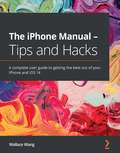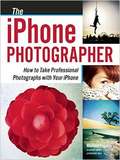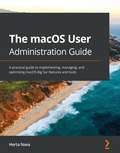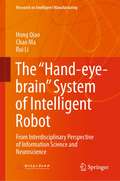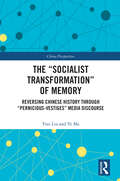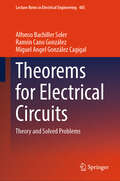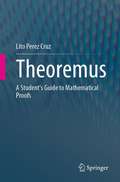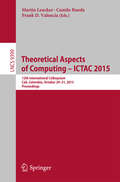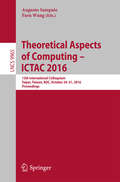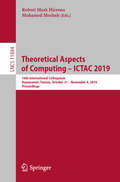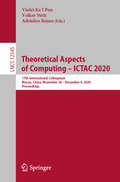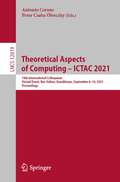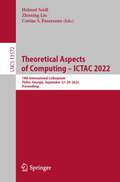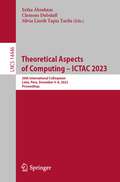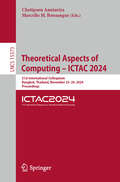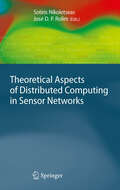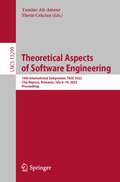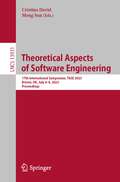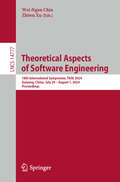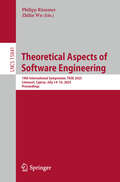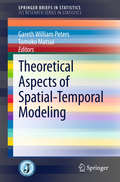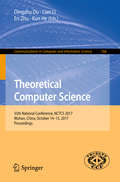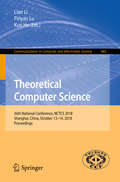- Table View
- List View
The iPhone Manual - Tips and Hacks: A complete user guide to getting the best out of your iPhone and iOS 14
by Wallace WangDiscover customization and productivity tips with this quick guide for iPhone usersKey FeaturesLearn everything about your iPhone quickly to use it as an effective tool for communication, entertainment, and workCustomize your phone's look and sound and modify the iOS's privacy settingsKeep your apps tidy and organized using the App LibraryBook DescriptionThe iPhone is the most popular smartphone available on the market, renowned for its sophisticated design, immersive UI, and user safety. And even if you've bought an iPhone for its impressive specifications, you may still be unaware of many of its features, which you'll discover with the help of this book!The iPhone Manual is your practical guide to uncovering the hidden potential of iPhones, and will leave you amazed at how productive you can be by learning tips and hacks for customizing your device as a communication, entertainment, and work tool. You'll unearth the complete range of iPhone features and customize it to streamline your day-to-day interaction with your device. This iPhone manual will help you explore your iPhone's impressive capabilities and fully understand all the features, functions, and settings that every iPhone owner should know. With this book, you'll get to grips with not only the basics of communication but also best practices for accessing photos, videos, and music to set up your entertainment using your iPhone. In addition to this, you'll learn about serious work tools that will make you productive in your everyday tasks.By the end of this iPhone book, you'll have learned how to use your iPhone to perform tasks and customize your experience in ways you probably didn't realize were possible.What you will learnUse touch gestures and understand the user interface to use any app on the iPhoneExplore the latest apps exclusive to iOS 14, such as the translate and magnifier appsFind out how to share data from your iPhone with other devicesSet up and customize Siri and learn how to give commandsDiscover different ways to capture and access pictures and videosSet up an email account and use multiple accounts on a single deviceSet up FaceTime on your iPhone and discover different ways to make a FaceTime callUse Apple Pay to shop online or send money to other usersWho this book is forThe book is for iPhone users who want to get more out of their state-of-the-art iPhone device and the powerful iOS interface. If you are new to using smartphones or are an Android user new to iPhones, this book will help you migrate efficiently.
The iPhone Photographer
by Michael FagansThe iPhone camera is a sophisticated device. It has compelled millions of people worldwide to take a new or renewed interest in photography. Let’s face it: most of us now have a tiny yet highly competent camera in a pocket or purse at all times these days, and we use it to grab shots of people, places, and things more and more often as the technology improves-and you know what? We’re largely pleased with those captures. If you’re a SERIOUS photographer, you may be wondering just how much mileage you can get out of your "simple,” ever-ready iPhone camera. Well, the answer may surprise you. In this book, Michael Fagans deconstructs photos taken in 60 scenarios-with a diverse array of subjects, in changing lighting conditions, in places that present unique challenges-showing you how to use solid, traditional photographic techniques to create great shots. Yes, Fagans will teach you the basics of creating a great photo. But there’s far more: He’ll show you that an iPhone, with the aid of apps, can mimic looks achieved by vintage cameras, a range of lenses, and countless filters. In this book, Fagans teaches you how to use free and low-cost apps and Instagram options to create (or, rather, re-create) beloved vintage-photo effects that you’d achieve with the Holga (a plastic vintage camera known for its unexpected lens distortion) and medium-format-camera looks. You’ll learn how to choose and use digital lenses, filters, and effects-and combine and re-combine them-to intensify color and contrast, de-saturate color, introduce lens aberrations, play with the grain and color cast in the image, and much, much more. What to emulate the look of vintage film stock to create a photo with an aged, time-worn feel? No problem. Want to introduce a little focusing inaccuracy for effect? Easily done. Want to do these things AND use traditional, professional artificial lighting sources (think a large softbox), a professional image-editing platform (Photoshop), and really refine your message while pulling out all the stops? Fagans shows you how. The deconstruction of the images in this book makes it worth the price of admission. Still, however, there is far more: Fagans is a photographer’s photographer. The book is peppered with inspiring quotes from Ansel Adams, Minor White, and countless other photographic visionaries that speak to the heart of photography.
The keys of success for MLM: The keys of success
by Vicente Cuenca"There is no riskier thing than not to take risk" A year ago, I was interviewing Mr. Francisco Javier Lopez Navarro, founding president of the international institute of Self- Employment. He is a successful entrepreneur, yet he wanted to know to improve his work. I was very surprised that this man came to me, since his company
The macOS User Administration Guide
by Herta NavaExplore the capabilities of macOS tools and architecture for support tasks and system administration to optimize your macOS environmentKey FeaturesDelve into macOS Big Sur, from installation to managing apps and optimizing your environmentGet to grips with system administration, along with monitoring, maintaining, and securing your systemsDiscover ways to secure your data, backup infrastructure, and explore hidden files and foldersBook DescriptionThis book is a practical guide for developers looking to understand the features and tools in macOS that make it a professional tool for system administration.You will understand the basics of system administration and later get up and running with monitoring, maintaining, and securing your systems. With practical examples and best practices, you will be able to build a backup infrastructure and virtual private network for your network. As you progress, you will understand how to secure your data and networks effectively by implementing various security strategies.By the end of this book, you’ll not only be well-versed with macOS features, administration tasks, and best practices but also be able to apply the concepts you learn to achieve professional Apple certifications such as Apple Certified Support Professional (ACSP).What you will learnUnderstand the fundamentals of the macOS system and architectureInstall, update, and configure your local macOS system and identify the stages of the startup processCreate and manage a local user account and set up your customized macOS environmentManage your file systems, storage, and permissionsExplore practices and techniques to work with apps, networks, and security for your Mac systemDelve into administration tasks such as managing service resources and peripherals Who This Book Is ForIf you are a system administrator, support and help desk technician or engineer, power user, or Mac user looking to develop your knowledge of macOS, then this system administration book is for you. The book assumes a general understanding of the macOS environment. Some knowledge of system administration tasks will be beneficial, but not mandatory.Table of ContentsOverview of the macOS system, architecture, and featuresInstalling and configuring macOSThe Startup ProcessUser Accounts ManagementManaging User Security and PrivacyThe macOS File System: Disks, Volumes, and PartitionsUnderstanding Ownership and PermissionsSystem Resources and ShortcutsUnderstanding Metadata and SearchingManaging Apps and DocumentsBackups and ArchivingNetworking in macOSUsing the Command LineUsing macOS Sharing ServicesManaging Security in macOSUsing the Command-LineAPPENDIX A: Troubleshooting Tips
The new iPad Portable Genius
by Paul McfedriesEssential coverage of everything you need to know about The new iPadThe popularity of the iPad is seemingly unstoppable and if you've decided to get in the iPad game, this handy guide is must-have reading. This easy-to-understand resource shares tips, tricks, and advice, to help you get the most out of your ultraportable tablet device. You'll learn how to maximize features of The new iPad such as the beautiful Retina display, multitouch screen, 5MP camera, Bluetooth and Wi-Fi +4G capability, eReader functionality, and much more.Shows you how to surf the web, watch movies and TV, listen to music, read books, play games, create presentations, edit documents, manage contacts, organize photos, update spreadsheets, and more Covers how to use and troubleshoot the latest iOS Features Genius icons to show you the smartest way to do things Helps save you time and avoid hassles as you get up to speed The new iPad Portable Genius presents you with accessible, useful information so that you can start confidently using your new iPad today!
The “Hand-eye-brain” System of Intelligent Robot: From Interdisciplinary Perspective of Information Science and Neuroscience (Research on Intelligent Manufacturing)
by Chao Ma Rui Li Hong QiaoThis book reports the new results of intelligent robot with hand-eye-brain, from the interdisciplinary perspective of information science and neuroscience. It collects novel research ideas on attractive region in environment (ARIE), intrinsic variable preserving manifold learning (IVPML) and biologically inspired visual congnition, which are theoretically important but challenging to develop the intelligent robot. Furthermore, the book offers new thoughts on the possible future development of human-inspired robotics, with vivid illustrations. The book is useful for researchers, R&D engineers and graduate students working on intelligent robots.
The “Socialist Transformation” of Memory: Reversing Chinese History through “Pernicious-Vestiges” Media Discourse (China Perspectives)
by Yusi Liu Ye MaThrough discourse analysis and historical comparison of "Pernicious Vestiges" (Yí Dú/遗毒) narrative in the news text of People’s Daily, this book is devoted to revealing its primary metaphors and political functions in China. "Pernicious Vestiges" (Yí Dú/遗毒) is one of the most frequently used words in contemporary Chinese historical narration, as well as a constantly changing rhetorical direction in new China's media discourse, whose function is to remold memory. Over the past 76 years, the "Pernicious Vestiges" narrative continuously constructed by People’s Daily, the official newspaper of the CPC Central Committee, reflects the views of China’s political elite and represents the ruling party's evaluation and re-evaluation of historical events. The findings of this book challenge the myth that memory is naturally superior to forgetting, reflect on the ethics of memory in "Pernicious Vestiges" narratives and the erasure of their own justice, and suggest that the critical space compressed by "Pernicious Vestiges" narratives should be returned to restore the order of memory and historical reflection. This book will be an excellent read for students and scholars of Chinese studies, media studies, and those who are interested in political communication and collective memory in general.
Theorems for Electrical Circuits: Theory and Solved Problems (Lecture Notes in Electrical Engineering #485)
by Alfonso Bachiller Soler Miguel Angel González Cagigal Ramón Cano GonzálezThis book focuses on the practical application of specific theorems in solving electrical circuits. Specifically, it covers the theorems of Superposition, Thevenin, Norton, and Maximum Power Transfer. The theory is kept concise, yet all the necessary concepts are explained, and plentiful problems are solved in detail. A vast amount of figures is used for a more effective learning. All in all, this book helps undergraduate and graduate students to develop the necessary skills to solve a broad range of transient exercises. It offers a unique complementary text to classical electric circuit textbooks, for students and self-study, as well.
Theoremus: A Student's Guide to Mathematical Proofs
by Lito Perez CruzA compact and easily accessible book, it guides the reader in unravelling the apparent mysteries found in doing mathematical proofs. Simply written, it introduces the art and science of proving mathematical theorems and propositions and equips students with the skill required to tackle the task of proving mathematical assertions. Theoremus - A Student's Guide to Mathematical Proofs is divided into two parts. Part 1 provides a grounding in the notion of mathematical assertions, arguments and fallacies and Part 2, presents lessons learned in action by applying them into the study of logic itself. The book supplies plenty of examples and figures, gives some historical background on personalities that gave rise to the topic and provides reflective problems to try and solve. The author aims to provide the reader with the confidence to take a deep dive into some more advanced work in mathematics or logic.
Theoretical Aspects of Computing - ICTAC 2015
by Martin Leucker Camilo Rueda Frank D. ValenciaThis book constitutes the refereed proceedings of the12th International Colloquium on Theoretical Aspects of Computing, ICTAC 2015,held in Cali, Colombia, in October 2015. The 25 revised full papers presented togetherwith 7 invited talks, 3 tool papers, and 2 short papers were carefully reviewedand selected from 93 submissions. The papers cover various topics such asalgebra and category theory; automata and formal languages; concurrency;constraints, logic and semantic; software architecture and component-baseddesign; and verification.
Theoretical Aspects of Computing – ICTAC 2016
by Augusto Sampaio Farn WangThis book constitutes the refereed proceedings of the 13th International Colloquium on Theoretical Aspects of Computing, ICTAC 2016, held in Taipei, Taiwan, in October 2016. The 23 revised full papers presented together with two short papers, two invited papers and one abstract of an invited paper were carefully reviewed and selected from 60 submissions. The papers are organized in topical sections on program verification; design, synthesis and testing; calculi; specifications; composition and transformation; automata; temporal logics; tool and short papers.
Theoretical Aspects of Computing – ICTAC 2019: 16th International Colloquium, Hammamet, Tunisia, October 31 – November 4, 2019, Proceedings (Lecture Notes in Computer Science #11884)
by Mohamed Mosbah Robert Mark HieronsThis book constitutes the refereed proceedings of the 16th International Colloquium on Theoretical Aspects of Computing, ICTAC 2019, held in Hammamet, Tunisia, in October/November 2019.The 17 revised full papers presented together with 2 keynote papers and 1 industrial paper were carefully reviewed and selected from 138 submissions.The papers are grouped in topical sections on models and transition systems; real-time and temporal logics; verification and concurrency; privacy and security; equations, types, and programming languages.
Theoretical Aspects of Computing – ICTAC 2020: 17th International Colloquium, Macau, China, November 30 – December 4, 2020, Proceedings (Lecture Notes in Computer Science #12545)
by Volker Stolz Violet Ka I Pun Adenilso SimaoThis book constitutes the proceedings of the 17th International Colloquium on Theoretical Aspects of Computing, ICTAC 2020, which took place during November 30-December 4, 2020. The conference was originally planned to take place in Macau, China, but changed to a virtual only format due to the COVID-19 pandemic. The 15 papers presented in this volume were carefully reviewed and selected from 40 submissions. The book also contains one invited talk in full paper length. The book deals with challenges in both theoretical aspects of computing and the exploitation of theory through methods and tools for system development.
Theoretical Aspects of Computing – ICTAC 2021: 18th International Colloquium, Virtual Event, Nur-Sultan, Kazakhstan, September 8–10, 2021, Proceedings (Lecture Notes in Computer Science #12819)
by Antonio Cerone Peter Csaba ÖlveczkyThis book constitutes the proceedings of the 18th International Colloquium on Theoretical Aspects of Computing, ICTAC 2021, organized by the Nazarbayev University, Nur-Sultan, Kazakhstan. The event was supposed to take place in Nur-Sultan, Kazakhstan, but due to COVID-19 pandemic is was held virtually. The 15 papers presented in this volume were carefully reviewed and selected from 40 submissions. The book also contains one invited talk in full paper length. The book deals with challenges in both theoretical aspects of computing and the exploitation of theory through methods and tools for system development. The 20 full papers presented in this volume were carefully reviewed and selected from 55 submissions. The papers cover a wide variety of topics, including: getting the best price for selling your personal data; attacking Bitcoin; optimizing various forms of model checking; synthesizing and learning algorithms; formalizing and verifying contracts, languages, and compilers; analyzing the correctness and complexity of programs and distributed systems; and finding connections from proofs in propositional logic to quantum programming languages.
Theoretical Aspects of Computing – ICTAC 2022: 19th International Colloquium, Tbilisi, Georgia, September 27–29, 2022, Proceedings (Lecture Notes in Computer Science #13572)
by Helmut Seidl Zhiming Liu Corina S. PasareanuThis book constitutes the proceedings of the 19th International Colloquium on Theoretical Aspects of Computing, ICTAC 2022, which took place in Tbilisi, Georgia, in September 2022.The 23 papers presented in this volume together with 2 short papers were carefully reviewed and selected from 52 submissions. The book deals with challenges in both theoretical aspects of computing and the exploitation of theory through methods and tools for system development.
Theoretical Aspects of Computing – ICTAC 2023: 20th International Colloquium, Lima, Peru, December 4–8, 2023, Proceedings (Lecture Notes in Computer Science #14446)
by Erika Ábrahám Silvia Lizeth Tapia Tarifa Clemens DubslaffThis book constitutes the proceedings of the 20th International Colloquium on Theoretical Aspects of Computing, ICTAC 2023, which took place in Lima, Peru, during December 4–8, 2023. The 20 full papers presented in this volume together with 3 invited papers and 1 tool paper were carefully reviewed and selected from 40 submissions. They were organised in the topical sections as follows: Bring Together Practitioners; Researchers from Academia; Industry; Government to Present Research Results and Exchange Experience and Ideas.
Theoretical Aspects of Computing – ICTAC 2024: 21st International Colloquium, Bangkok, Thailand, November 25–29, 2024, Proceedings (Lecture Notes in Computer Science #15373)
by Marcello M. Bonsangue Chutiporn AnutariyaThis book constitutes the refereed proceedings of the 21st International Colloquium on Theoretical Aspects of Computing, ICTAC 2024, held in Bangkok, Thailand, during November 25–29, 2024. The 21 full papers presented here were carefully reviewed and selected from 46 submissions. They were categorized into the following topical sections: Invited Papers; Automata, Languages, and Learning; Algorithms and Complexity; Graphs and Games; Process Calculi; Verification and Reasoning.
Theoretical Aspects of Distributed Computing in Sensor Networks
by José D.P. Rolim Sotiris NikoletseasWireless ad hoc sensor networks has recently become a very active research subject. Achieving efficient, fault-tolerant realizations of very large, highly dynamic, complex, unconventional networks is a real challenge for abstract modelling, algorithmic design and analysis, but a solid foundational and theoretical background seems to be lacking. This book presents high-quality contributions by leading experts worldwide on the key algorithmic and complexity-theoretic aspects of wireless sensor networks. The intended audience includes researchers and graduate students working on sensor networks, and the broader areas of wireless networking and distributed computing, as well as practitioners in the relevant application areas. The book can also serve as a text for advanced courses and seminars.
Theoretical Aspects of Software Engineering: 16th International Symposium, TASE 2022, Cluj-Napoca, Romania, July 8–10, 2022, Proceedings (Lecture Notes in Computer Science #13299)
by Yamine Aït-Ameur Florin CrăciunThis book constitutes the proceedings of the 16th International Conference on Theoretical Aspects of Software Engineering, TASE 2022, held in Cluj-Napoca, Romania, July 2022. The 21 full regular papers presented together with 5 short papers in this book were carefully reviewed and selected from 71 submissions. The topics of the papers covering various fields in software engineering and the latest developments in in formal and theoretical software engineering methods and techniques.
Theoretical Aspects of Software Engineering: 17th International Symposium, TASE 2023, Bristol, UK, July 4–6, 2023, Proceedings (Lecture Notes in Computer Science #13931)
by Meng Sun Cristina DavidThis book constitutes the proceedings of the 17th International Conference on Theoretical Aspects of Software Engineering, TASE 2023, held in Bristol, UK, July 4–6, 2023.The 19 full papers and 2 short papers included in this book were carefully reviewed and selected from 49 submissions. They cover the following areas: distributed and concurrent systems; cyber-physical systems; embedded and real-time systems; object-oriented systems; quantum computing; formal verification and program semantics; static analysis; formal methods; verification and testing for AI systems; and AI for formal methods.
Theoretical Aspects of Software Engineering: 18th International Symposium, TASE 2024, Guiyang, China, July 29 – August 1, 2024, Proceedings (Lecture Notes in Computer Science #14777)
by Wei-Ngan Chin Zhiwu XuThis book constitutes the refereed proceedings of the 18th International Symposium on Theoretical Aspects of Software Engineering, TASE 2024, held in Guiyang, China, during July 29–August 1, 2024. The 24 full papers, 2 short papers, 1 invited abstract and 1 invited papers were carefully selected from 76 submissions. The papers presented new results on innovative advances in software engineering, as well as the latest developments in formal and theoretical software engineering methods and techniques.
Theoretical Aspects of Software Engineering: 19th International Symposium, TASE 2025, Limassol, Cyprus, July 14–16, 2025, Proceedings (Lecture Notes in Computer Science #15841)
by Philipp Rümmer Zhilin WuThis book constitutes the refereed proceedings of the 19th International Symposium on Theoretical Aspects of Software Engineering, TASE 2025, held in Limassol, Cyprus, during July 14–16, 2025.The 20 full papers, 1 short paper, 2 invited papers were carefully selected from 66 submissions.The papers present the latest developments in formal and theoretical software engineering methods and techniques.They are grouped in topical sections on program verification; verification and concurrency; SAT and SMT solving; trustworthy AI and system software; program analysis using machine learning; security; and dynamic analysis.
Theoretical Aspects of Spatial-Temporal Modeling
by Gareth William Peters Tomoko MatsuiThis book provides a modern introductory tutorial on specialized theoretical aspects of spatial and temporal modeling. The areas covered involve a range of topics which reflect the diversity of this domain of research across a number of quantitative disciplines. For instance, the first chapter provides up-to-date coverage of particle association measures that underpin the theoretical properties of recently developed random set methods in space and time otherwise known as the class of probability hypothesis density framework (PHD filters). The second chapter gives an overview of recent advances in Monte Carlo methods for Bayesian filtering in high-dimensional spaces. In particular, the chapter explains how one may extend classical sequential Monte Carlo methods for filtering and static inference problems to high dimensions and big-data applications. The third chapter presents an overview of generalized families of processes that extend the class of Gaussian process models to heavy-tailed families known as alpha-stable processes. In particular, it covers aspects of characterization via the spectral measure of heavy-tailed distributions and then provides an overview of their applications in wireless communications channel modeling. The final chapter concludes with an overview of analysis for probabilistic spatial percolation methods that are relevant in the modeling of graphical networks and connectivity applications in sensor networks, which also incorporate stochastic geometry features.
Theoretical Computer Science
by Lian Li Dingzhu Du En Zhu Kun HeThe satisfiability (SAT) problem is central in mathematical logic, computing theory, and many industrial applications. There has been a strong relationship between the theory, the algorithms, and the applications of the SAT problem. This book aims to bring together work by the best theorists, algorithmists, and practitioners working on the SAT problem and on industrial applications, as well as to enhance the interaction between the three research groups. The book features the application of theoretical/algorithmic results to practical problems and presents practical problems for theoretical/algorithmic study. Major topics covered in the book include practical and industrial SAT problems and benchmarks, significant case studies and applications of the SAT problem and SAT algorithms, new algorithms and improved techniques for satisfiability testing, specific data structures and implementation details of the SAT algorithms, and the theoretical study of the SAT problem and SAT algorithms. It features: a comprehensive review of SAT research work over the past 25 years; the most recent research results; and a spectrum of algorithmic issues and applications.
Theoretical Computer Science: 36th National Conference, NCTCS 2018, Shanghai, China, October 13–14, 2018, Proceedings (Communications in Computer and Information Science #882)
by Lian Li Kun He Pinyan LuThis book constitutes the thoroughly refereed proceedings of the National Conference of Theoretical Computer Science, NCTCS 2018, held in Shanghai, China, in October 2018. The 11 full papers presented were carefully reviewed and selected from 31 submissions. They present relevant trends of current research in the area of algorithms and complexity, software theory and method, data science and machine learning theory.
